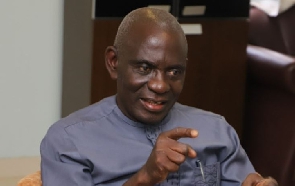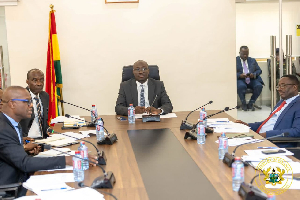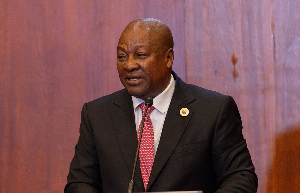In 2009/2010, Nigeria’s rice production was around 2,200,000 tonnes but more than doubled in the past decade, hitting 5,000,000 tonnes as of 2021.2022, according to figures from the US Department of Agriculture.
The US data show a significant increase in production between 2015 and 2017, which then slowed before another jump in 2020 when production reached a high point of 5.04 million tonnes, according to the BBC.
In the past decade, Nigeria’s rice farms saw some expansion and subsequent contraction.
It grew from about 3.1 million hectares (7.7 million acres) in 2015 to 5.9 million hectares in 2018 and then dropped to 5.3 million hectares in 2020, according to figures from the UN Food and Agriculture Organization (FAO) data.
The government has been providing improved seedlings and fertiliser to smallholder farmers, and also invested in irrigation schemes.
In 2014, a scheme to help farmers hire machinery was introduced to improve mechanisation, and in some states, regional governments have granted land concessions as an incentive to large commercial farmers.
In November 2015, the Central Bank of Nigeria launched a programme, under which farmers receive loans at favourable rates. Farmers can opt to pay them back with part of their produce.
The grain is stored in rice pyramids in Abuja.
Much of Nigeria’s rice production success is credited to Mr Abraham Dwuma Odoom, a former Ghanaian lawmaker, who represented the constituents of Twifo Atti-Morkwa in his home country.
He was the brain behind the scheme that resulted in Nigeria’s rice boom that made Africa’s most populous country a net-exporter of rice.
Talking the Nigerian experience with Korku Lumor on Class91.3FM’s breakfast show on Thursday, 5 January 2023, Mr Odoom said: “I developed the concept right here in Ghana even before I went to Nigeria.
“How did the concept come about? I initiated cocoa high-tech and after I had initiated cocoa high-tech and President Kufuor was out of office, he was asked to bring me to Liberia to help and I went to Liberia to also help them resuscitate their cocoa after the long period of war,” he recalled.
“So, it was there that I came to the realisation that we need to do something as Africans to, at least, take agriculture into our hands rather than depending on foreign imports,” he continued.
“So, I did a concept paper for rice and cocoa. I brought it down to President Kufuor, who also endorsed it, then said, ‘Ok, let me take you to Prof Amanor of the University of Legon. We went there and he also helped me to put more flesh onto the concept paper,” he narrated.
“Then, at a forum in Washington, Katanga Foundation and the Michigan State University accepted to work with us to bring it up to international standard. It was after that that we got Bill and Melinda Gates to support President Kufuor so that we could do it in four countries in Africa: Ghana, Tanzania, Burkina Faso and Nigeria,” the ex-lawmaker explained.
He said: “I happened to be the head of policy and advocacy. We had two components – the technical side and the policy and advocacy. And I was the head of policy and advocacy, so, I was based in Nigeria and then we worked for what the success story of Nigeria came up [to be].”
The Nigerian government celebrated Mr Odoom in 2022 for his role in the country’s rice success story.
He told Korku Lumor that January, last year, was when Nigeria celebrated the country’s seventh anniversary of rice production success and “they honoured me by inviting me as the guest of honour and the letter stipulated in the third paragraph that ‘For your contribution to the success of the Nigeria rice story, we are bringing you here to honour you’.”
“So, I went and came and the whole thing now became viral and everybody is discussing it”, he said, adding: “So, I haven’t lost my touch”.
General News of Thursday, 5 January 2023
Source: classfmonline.com
'I haven't lost my touch' – The Ghanaian politician who made Nigeria rice-sufficient
Entertainment












